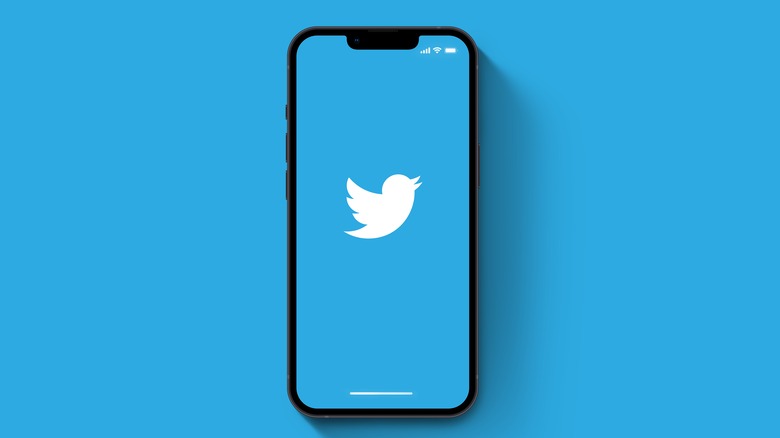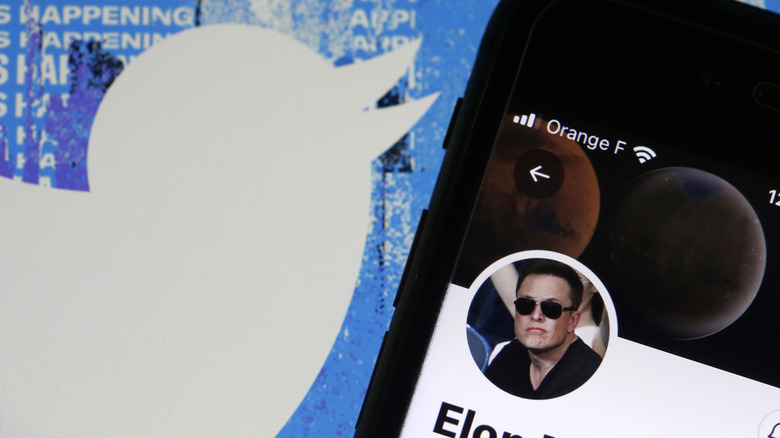Elon Musk's Leaked Twitter Verification Plan Is Light On Verification
Elon Musk has reportedly tasked Twitter employees with rolling out the updated — and pricier – Twitter Blue subscription as early as next Monday. Priced at $8 per month, the subscription is now tied to the account verification system. If you want to keep the coveted blue tick, you need to pay up or you'll lose it. For those without a verified badge, this is the paid opportunity of a lifetime. The overhauled Twitter Blue subscription system will be rolled out in the United States, Canada, Australia, and New Zealand. However, Times reporter Ryan Mac tweeted that there are also plans to expand into the European market.
The plan is controversial, as Musk is essentially selling verified badges at a price some legitimate account owners can't afford to pay, and it's likely some scammers will happily fork out the money to dupe gullible social media users. Musk says the paid verification system is a way to weed out the bots, generate money to reduce the reliance on ads, and reward creators. According to a report from The New York Times that cites internal documents, the updated account verification system lacks any real identity verification protocol. The report notes that "subscribers would not need their identities authenticated to get the check mark."
Verification, without any actual verification
So far, Twitter has used the blue checkmark as a trust-building mechanism and to certify that the account belongs to an influential personality. Journalists, government institutions, disaster management bodies, and brands have used the verified badge to post information that users can trust. Putting a price on the verified badge, and adding a caveat of snatching it back due to non-payment, sounds like a bundle of bad news.
In its current form, the verification system requires "a valid official government-issued identification document" such as a driving license or passport to certify an individual's identity. The other alternative systems involve using the email domain of an institution, which itself has a verified Twitter account, or a website that mentions an individual's name clearly.
Musk's apparent lackadaisical approach to ending the stringent identity cross-checking protocol for getting an account verified seems like an open invitation to all sorts of troubles. So far, the company — or its new CEO – have said nothing about handling impersonator or bad actor accounts that have paid to get a blue check mark for their Twitter profile.

